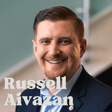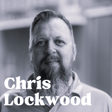Transition to Strategic Leadership
00:00:26
Speaker
So I think it would probably be most beneficial to the audience if we started first with an elevator pitch of what you do as the chairman of Belgramia because it is such a generalist title for a company that does, I mean, commercial development, single family construction, legal advisory. You guys are involved with some venture capital firms in a Chicagoland area, like just if you could summarize.
00:00:51
Speaker
Yeah, we were fingers in a lot of things. I mean, the short answer to what the chairman does at this point being in my sixties is not as much. The answer is not as much as I used to do. I used to do everything. I mean, from showing office space and trying to figure out the right keys to doing the legal work way back when the business, I did it all. And now I've been fortunate enough to have recruited and brought in a great group of people, many of which had been with us for years and years,
00:01:21
Speaker
And it allows me to be out finding property, making connections, contacts for equity and wellness and kind of a higher level type of a position, which also allows me to horse around and go play golf and be down here in Arizona for chunks of the wintertime. Yeah. My rules change quite a bit over the years. I'm not doing the nuts and bolts, but I'm still the resource that they go to if they have a question or need to kind of check something. Sure.
Golf as a Networking Tool
00:01:48
Speaker
So I still have some value, but it's not the same. Hey, golf is synonymous with business development. I'm learning. So I've met some really interesting people down here in Arizona on the golf course. I met a guy who was a former pro football player, become friends with him. And he just, I just had breakfast Wednesday with a good buddy of his.
00:02:08
Speaker
who was a former baseball player for many, many years and wants to be investing in real estate. So, you know, keep your eyes and ears open and sometimes some interesting things come out of all the fun networking types of things like golf. Yeah, absolutely. Do you find then that the core of what you do on the day to day then is networking focused or would you more so classify yourself like as a lawyer, as an accountant, as a
00:02:36
Speaker
I wouldn't say, I wouldn't classify myself as any of those things. I mean, I think I'm a networker, a connector, I'm a coach, I'm a consultant. I mean, the sense of which I've celebrated a group, I mean, I'm the resource that somebody goes, hey, we kind of need to check our thinking on this or
00:02:56
Speaker
But I still involve them at the beginning of projects, like the things we're doing down here in Arizona, where I found the property, I kind of had this vision for what to do there, work with the team and the architects to make it come to life. And then the day-to-day getting the permits, things like that, I'm not really involved in unless there's some kind of issue of problem. Yeah. Knock on wood. Nothing too bad so far.
00:03:22
Speaker
One such thing is perfect construction or perfect plans. Every architect we've ever worked with has messed something up that's cost money. It's just the nature of the business. There's so many things that go into building any kind of a building that it's unavoidable that you're going to have some issues and you just have to work through.
Career Path: Law to Real Estate
00:03:42
Speaker
Speaking of there being no such thing as a perfect plan, if you teleport yourself kind of mentally to the beginning of your college journey, did you have any semblance of an idea that you would be where you are today when it came to choosing your major or really anything?
00:04:02
Speaker
Grew up in Skokie. My father was a criminal attorney, which I knew I didn't want to do that because you would get these calls in the middle of the night, you know, hey, Mr. Lev, I'm in jail. And he'd be like, well, it's kind of late. I'll get you out tomorrow. And I'm like, yeah, how do you represent these people with guilty son? They're innocent until proven go. And I'm like, I don't want to do this. But I made it because he was a lawyer. I didn't have a passion for anything other than sports and girls and
00:04:32
Speaker
music were kind of my passion. And none of those were leading to any kind of a job. So by default, I think when I went into the University of Illinois, I had the idea that I was going to go to law school. And then I said, well, I need to major in something. So I said, well, I'm probably not really interested in it. It seems like something that may be good to do that
00:04:56
Speaker
You know, we're helping get into law school. So I did use the accounting degree a little bit. I helped work my way through law school by working at Price Waterhouse a couple of years and making some money to help defray the law school costs. And I got into real estate law by default, too.
00:05:14
Speaker
firms were coming to interview at Loyola, where I went to law school, and I got an offer from a meat-sized firm, and they go, well, we're going to recruit you to do real estate. I'm like, great. I didn't even know what real estate was, other than the fact that I lived in an apartment and I grew up in a house.
00:05:32
Speaker
So, practiced law for four years.
Meeting Buzz Reppenberg
00:05:36
Speaker
I was at one firm to start with, the one right out of law school, and I wasn't particularly happy, and I wasn't sure if I didn't like practicing law or people, which was a real tough group of people.
00:05:48
Speaker
So I got recruited to go somewhere else. I went to this other firm and the people were really, really nice and good to work with. And I was okay. I guess I kind of stuck it out and done that. But I was lucky enough to meet Buzz Reppenberg, who's now been my partner for 35 years and who turned 83 today, by the way. And we just kind of hit it off. I was doing his legal work because he and his brother and father shared space in the suite of the firm I was at.
00:06:16
Speaker
And we kind of just, Buzz is 20 years older than I am, 63, and we just kind of hit it off. And he was still practicing some law and doing some real estate. And we're like, hey, why don't we talk for months and months? Why don't we start our thing ourselves?
00:06:31
Speaker
And I'm like, yeah, great. And I left because I had seen what the real estate business people were doing. I'm a business side as a lawyer documenting their transaction. Like, wow, that seems more interesting. So I left. And I was 28. And I said, you know, I really had nothing to lose. I was married, no kids yet. Yeah, no kids yet. And I figured if there's a backup plan, if it didn't work for any reason, I could always find a law job somewhere and make a living. Yeah.
00:07:02
Speaker
never look back. So there was no grand plan, I guess is the answer. I think part of life is sometimes timing and taking opportunities or taking risks and not necessarily knowing where it's going to lead and, you know, just adjusting.
00:07:18
Speaker
So was Buzz, when you say that he and his partners were practicing kind of real estate, real estate law and quotations, what exactly did that look like? Were they just representing people who were buying single family homes or was he doing bigger stuff already? Starting to do a little bit of bigger stuff. He had a partner at the time that was a general contractor.
00:07:40
Speaker
And they were starting to do a little bit of new development when I first met Buzz. But Buzz did a little bit of real estate. Well, I don't think he did single-family homes. I think he did real estate, legal work for some bigger projects. He also did some litigation. He had started out his career at Kirkland and Ellis law firm. So he had a big law firm experience. His father was a lawyer and office with him also, and his brother office with him too.
00:08:07
Speaker
So, I had all the Rottenburgs, and it was kind of funny. When I started at the second law firm, I came home to my wife, Karen. I said, oh, I met all these really cool people. There's this guy, Bars, and there's his brother, Biff, and there was this lawyer from Goldberg County. His name's Skip, and she's like, what will they call you? You know, oof, or, you know. And I'm like, no, no, call me Alan. But, you know, so all these people have big names, you know. Yeah. They're funny.
00:08:33
Speaker
So I am fascinated by the idea of people finding each other as business partners. And you point out the fact intentionally that Buzz was 20 years older than you. Now, how did you connect with this man? Like what kind of topics did you guys have in common? And was it a situation where like he was really in need of somebody younger with your skill sets and he just adopted you into his firm or how did that work?
00:08:56
Speaker
Well, I was 28 at the time. He was 48. So he was a young 48. He's a young 83. Guy still skis and travels the world. I mean, you know, I call him a freak of nature because he's just got so much energy. Yeah. I don't know. What did we really have? I mean, we had the law in common. We had real estate in common. We had this, you know, all these people that we knew in common.
Founding a Business Together
00:09:22
Speaker
But he's a young soul, I guess I would put it that way. So, you know, we just hit it off. And I started out within the business premise was he was paying a certain amount of money every year to the law firm for me doing work for him, but only, you know, maybe spending a quarter of my time on his stuff. Well, you know, what if I paid you the same amount of money, you come to work with me, you'll do all the legal work that I was paying for outside, and you'll learn the business and we'll see where it goes. Yeah.
00:09:51
Speaker
And there was no promise of me being anything other than the in-house lawyer potentially. There was no promise of being a partner or getting to where I ultimately got to. But I guess I had enough moxie or conceit or something in myself to think that you learn it and make it into something else. And after a couple of years of having that dual role, I stopped practicing the law part. We've had in-house attorneys ever since. I've been 100% on the business side. Yeah.
Skills from Law School
00:10:21
Speaker
Great. I got to tell you, I tell young people, should I go to law school? In my day, there were a lot of people went to law school that never practiced law or practiced for a short time. Today I tell people, so unless you really think you want to be a lawyer, don't do it. It's not worth any huge expense that it is now. Sure.
00:10:39
Speaker
Having said that, I wouldn't have gotten in the real estate business and where I am without having had that law degree. I never would have gotten a job, but beyond that, it's the way it's thinking and the way to analyze things. You learn that in law school. You don't know how to be a lawyer in law school, but you learn a way of thinking, and it's been instrumental in learning the business of development and becoming successful at it.
00:11:03
Speaker
Sure. That's an actually interesting concept that I find myself discussing with even family members a lot is it's weird how in America there's this obsession with becoming a technical expert in a field before you really think about whether you want to be in that field as a practitioner long-term. And like the classic example of that is people who go to college and are pre-med, right? Like they spend all these years studying bio and chem and
00:11:30
Speaker
whatever else, to apply to medical school only to realize that they don't actually want to be there long term,
Academic vs. Real-World Skills
00:11:35
Speaker
right? So what do you do with that skill set?
00:11:37
Speaker
There's very few professions, I think, that they really teach you in school how to perform in that profession. Out of a university of Illinois with an accounting degree, you don't have any accountants. You come out of wherever you go to law school, you don't know how to be a lawyer. You kind of have some of the basics for it, but until you get out and you also, therefore, you always have to find a situation where there are people willing to teach you.
00:12:03
Speaker
And I was lucky enough in the law firm that I was at, the law firms, that you find the people that are older and are willing to give you some time. And not everyone will. But my first firm, I was like, well, I don't have time for a young associate. And I'm like, okay.
Organic Growth of Belgravia
00:12:19
Speaker
And comes around, goes around, because I remember one person who never had time for me.
00:12:25
Speaker
And then years later asked me for business and I politely said, no, I'm big. There's no fricking way. You wouldn't give me the time of day. And you know, maybe that's where I learned this idea in my mind that I always give him my time.
00:12:41
Speaker
podcast with you. We haven't met before, but I get calls all the time from young people and I invariably find the time to talk with them, meet with them, because I just have this idea that if you give of yourself that somehow cosmically, it comes back to help you out someday. Maybe it doesn't, but it makes me feel good to do it.
00:13:03
Speaker
my early career and seeing people not do that. I guess you model yourself like you do with your parents. You're like, well, I like how they do these things, but I really don't like how they do these things. They're different. Well, and the difference too in people approaching, young people approaching you for advice when it comes to pursuing careers in real estate is
00:13:23
Speaker
They can take as many classes that they want in U of I with whatever sort of real estate focus. But when they look at their professors at the end of the day, how many of them have ever invested in anything, right? Like how many of them are developers? How many of them actually have like worthwhile industry connections? So in order to really, yeah.
00:13:41
Speaker
I guess he's an adjunct professor. He's one I'm working with to try and revitalize the real estate program. But he does have, you know, real life, business, real estate experience. But, right, a lot of teachers do not.
00:13:59
Speaker
I was just going to say, Seth is a name that has come up again and again for me. I've been trying to get him on this show, but he is one of few, so. You can. I can get you in touch with him easily. That would be so awesome. Thank you. But I was going to ask you, you're talking about kind of very luckily finding yourself in a circumstance where you connect with Buzz. What was he doing on the business side that really attracted you to kind of put down your lawyer hat and join him on the actual implementation side of things?
First Major Project: Belgravia Terrace
00:14:30
Speaker
What was his vision? I don't know if the company was called Belgravia at that point or like the actual substantial project new construction that he worked on was called Belgravia Terrace. It was an old hospital site in Lincoln Park that tore the hospital down and built a town hall complex.
00:14:50
Speaker
We were looking for an interesting name for it that seems to have some cash. So we were looking at the map of one. They were like, oh, that's Belgrade area is really nice. So that the project was called Belgrade at Terrace. And we didn't really have a company name at that time. And then needed one. And instead of calling it, you know, the buzz show or something or people.
00:15:08
Speaker
I remember our original stationery was this coat of arms, you know, made it look like it was kind of, you know,
00:15:24
Speaker
What we didn't realize, we got a cease and desist letter some years later from the Queen's office that apparently we had stolen the Queen's coat of arms. I know. We had to take it off and stop using that. But anyway, that's how we came up. I don't think Buzz here had this vision of, oh, we're going to
00:15:46
Speaker
build a company to this size and do this many things. And it kind of just happened organically. And what attracted me to him was he was really smart, very personable guy. And he had an ethic in a way about himself that really resonated with me, where we've over the years come up with all sorts of sayings. But, you know,
00:16:11
Speaker
just the way of treating people and the way of dealing with customers and contractors and whoever it is. And it's really paid huge dividends to learn how you treat the person who's sweeping out the unit up to the person who was the president of the bank and treating them all the same with the same type of respect. And always, we pride ourselves on always being very honest and above board on everything that we do. We've gone back and fixed things that were
00:16:40
Speaker
messed up in project years after we were legally responsible to do it, but we knew it was the right thing to do. Just living by that tenant and seeing that that was what he was like was really important to me.
00:16:54
Speaker
He was a moral mentor, sort of, character-wise. Yeah, yeah, yeah. I like that. Like anybody else, I mean, there's, like, my parents, like I mentioned before, I mean, there's a lot of things I've emulated in Buzz's character and life, and there's other things I'm like, yeah, I'm not going to be like that.
00:17:12
Speaker
But that's with everybody. I think I do that with my spouse too, so it's unavoidable. But yeah, it's been a combination of a partner mentor, kind of father figure, because he's older than I am. I think I learned, I do a lot of charitable work and volunteer work, and I think I learned that from him too. It wasn't for my family.
00:17:33
Speaker
I saw him doing things for our institute, Morrowind Foundation. He was involved in a lot of things, not just giving up his money, but of time. Sure. Where I picked that up also. Got it. So then I'm assuming that your dad was encouraging you about pursuing higher education. Well, he went to college and law school. My mom went to college. I think I'm very, very young.
00:17:58
Speaker
My, I have an older brother and he went to college. It just seems always growing up in Skokie, I guess it was just always assumed there was never a question that I was in college.
00:18:09
Speaker
I never needed to be pushed to do relatively well in school and push me to go to law school. I don't know. There was something inside myself that I think it was really a part of my upbringing or then that pushed me to try and achieve a certain level of success.
00:18:29
Speaker
And growing up, we were, you know, lower middle class, maybe, I don't know, middle class. Money was a big issue. My dad was a sole practitioner, a friend of mine, but older brother, younger sister. Money was always an issue in our household and wasn't particularly close with my parents. And I, at a young age, decided I was going to kind of
00:18:52
Speaker
make myself what I wanted at a very early end. And I just was always going to figure out how to not have the same kind of issues and problems that they have. That was just kind of my goal. How I didn't know, but I just knew I was going to be in that same kind of position.
00:19:08
Speaker
I mean, this gets me wondering, do you think that your initial dissatisfaction with jobs at those law firms had to do with the fact that they weren't remotely as entrepreneurial as what you would later find in your life? Have you always kind of had that calling to do your own thing, but you didn't realize it was that until you actually started? It could be. I mean, the first firm I was at, the people were just very, very difficult. It was a tough atmosphere. Yeah.
00:19:38
Speaker
And I didn't want to, after having spent three years in law school, I didn't want to just work at one place and go, okay, well, I got to find something else. That's why I went over to this other firm. I could have still been practicing law forever if I had not met Buzz and found that opportunity. I think
00:19:58
Speaker
I didn't know it at the time, but I think I definitely had the entrepreneurial spirit somewhere inside me because otherwise I wouldn't have been successful in doing it. I'm still out there meeting people and I probably looked at three different properties today. I was trying to figure out if we want to buy and what we want to do with them. Some of which you learn, some of it I think is a little bit, you know, genuine. Yeah. But I was lucky enough to match them up. It doesn't always happen that way.
00:20:25
Speaker
Right. And to find the right person who could motivate you, teach you. Yeah. How did those initial projects that you did with Buzz evolve? So you had this like Belgravia, like the namesake of your company project, and then what did you start taking on afterwards? Did you get right into commercial development or stick more so with smaller suburban deals?
00:20:47
Speaker
We've never done any suburban deals. They're all city of Chicago.
Success in For-Sale Housing
00:20:51
Speaker
We used to do a mix. We had some apartment buildings. We had for sale housing where we had some retail and some office.
00:20:59
Speaker
And we decided many, many years ago, the office stuff was just so much work for just not much payback as an owner. And we just gave that up. We sold the office portfolio, I don't know, 25 years ago, maybe. Sure. And got out of that, thank God, because I mean, forgetting what's going on in office now, it's just a very tough business. You really have to time it right.
00:21:22
Speaker
because the tenants come, they go, we tend to space, you know, to redo the space. It's just, it's not an easy business model. Yeah.
00:21:32
Speaker
And we found that we were good at housing and we've done more for-sale housing than we've done run housing. A lot of people stay away from the for-sale housing because you have to deal with lots of different buyers and individuals and personalities and there's more risk involved in doing new construction for sale.
00:21:53
Speaker
And the profits are ordinary income instead of capital gains. There's a lot of reasons why it's probably your head examined like we keep doing it, but we're really good at it. Yeah. And that's why we continue to do it.
00:22:06
Speaker
Yeah. At what point do you guys have a team of realtors, I'm assuming, who started to help you out at some point, sell to individual buyers? Yeah. For years, we had outside firms do our sales. Yeah. We got to a point, and this was my idea, where I said, but as I said, this is dumb. We should start our own realty company because we've got no control really over what the salespeople are doing because they work. Yeah.
00:22:33
Speaker
Secret shopping, you know, where somebody would come in with a camera and a microphone and stuff and, you know, a little hyperbole, but, you know, the secret shopper came in and the broker got up and said, take a look around, let me know if you have any questions. And, you know, when I saw that, I go, that is just not sales. And, you know, maybe in a really good market,
00:22:56
Speaker
You can survive that way, but when times are tougher, you have to sell. Absolutely. I didn't take much convincing, but I said we have to start our own sales business and we did it. We still have it in Chicago. We don't have it right now in Arizona, but we probably know now that we're doing it. Yeah.
00:23:14
Speaker
Just the control of having the salespeople that they work only on your projects as opposed to when you hire somebody an outside firm. They put people on the project but they're rotating further. They don't know it as well. They have other sources of making money. Our salespeople are really invested because they either make money selling our real product or they don't make any money.
00:23:34
Speaker
And we also had a mortgage business for a long time too. We had a joint venture with Wells Fargo and that did well too. We worked a lot of loans and we stopped doing that after the recession because the laws changed making it much harder to do these joint ventures with lenders. But so we did that too. We used to do construction work too and we don't do that anymore.
00:23:59
Speaker
Currently, what do you guys have? Or I guess a better question is, because you seem to be still pretty vertically integrated, what services do you hire out for? Architectural. We don't do that. We have some in-house talent on it, but we don't do that. So architects, engineers, specialized law, even though we're in-house lawyers, if we're doing a reselling, for example, we'll hire a zoning attorney. Now we do mostly everything in-house.
00:24:29
Speaker
legal accounting, design, project management, marketing. It seems the philosophy of your business is you hire people out to do kind of like the expertise work. Like you're saying that you don't necessarily need to be a lawyer to have gone to law school yourself and have those three years of knowledge and
00:24:51
Speaker
however many more of industry experience to be successful in development. So I guess my question for you is looking at buzz and looking at yourself and the work that you've done over the years, what skills do you actually need as the business owner, not as the salesperson and not as the lawyer, but just as the person who holds it all together? You have to be not necessarily an expert in any one particular area, but you have enough of all of them.
00:25:18
Speaker
You have to know a little bit about all the different areas to be a really good developer. Some developers, I know, they farm everything out. Maybe soon the architect is drawing plans that will be fine and they're good. We don't do that. We say, no, we don't like that. That's the wrong layout. That's the wrong size.
00:25:37
Speaker
So having a little bit of knowledge about all the different facets, you know, how do, how do I find a piece of property? What should I put on it? How do I finance it? How do I get the equity marketing and sales? And I know a little bit about architecture and geography and, and just learning all the, you have to know enough where if you're sitting in a meeting and somebody that you hired said, Oh, it's blue. And you go, yeah, I'm not sure that's blue. Like it's something else. And you just.
00:26:05
Speaker
you know, a lot of it's by experience, but the best people in the business have a very broad knowledge base from that they can, you know, tap into. Yeah. Maybe an expert in one or two things, but they're not, you can't be in an expert area, but then you surround yourself with other people. Yeah.
00:26:23
Speaker
even house people that have construction backgrounds that even though we hire an outside general contractor that they're constantly looking at things and trying to find things that you're going to get missed. And so even though I have some construction experience, I have somebody around this that's got even more. Yeah.
00:26:41
Speaker
I have three players, I have accountants, I have, you know. Right. Great. People that you consult. Regine gained your construction know-how because you did go to school, like a lot of people who have a lot of background in that field ended up going to trade school or their jobs out of high school or whatever that focused kind of on those realms.
00:27:01
Speaker
being out in the field, whereas we were building things and I was young in my career, I'd be out multiple times a week just asking questions or sitting in construction meetings. And, you know, just soaking it up. After a long time, you know, there's always things that surprise you. But I was talking to our contractor yesterday out here in Arizona. And he was talking about certain things. And I knew exactly what he was talking about. I just so you don't necessarily have to have the
00:27:31
Speaker
school training for things. You can get the training for things out in the business world. Got it. I want to go back a little bit to you describing the kinds of projects that Belgravia was initially
Focus on Urban For-Sale Housing
00:27:43
Speaker
doing. Like you described building to sell. Did you guys ever do like build to rent developments? Well, then we've done office development. We've done retail. Yeah. And we've done apartments. Well, the answer is yes. Sure. But again, you have gravitated
00:28:02
Speaker
partially because there's far fewer people in the for sale space, urban environments, and there are people in rental projects. And a lot of people shy away from it. So we usually go towards a thing that are harder for other people if we're good at it. About the only thing we haven't done is hospitality and industrial. I mean, those are the only two things we haven't done.
00:28:26
Speaker
Do you have a favorite type of project where if Buzz called you at this point in your career and made you force one kind of thing to do for the rest of your days, what would you choose?
00:28:40
Speaker
I don't want to say boring, but in Chicago we've done so much work and it's got difficult there that opening up another market down here has been tremendous.
Exploring New Markets
00:28:50
Speaker
It's been actually revitalizing for me. It's getting a little stale on things and it's been a good move for us.
00:28:58
Speaker
I think any single person doesn't look back much. So I don't look back and go, oh, I did this or I didn't do this. I'm looking forward. So I don't sit back and go, oh, boy, we built 2,500 homes in our career. Look how great we are. I'm thinking about what's the next thing and the next thing. I think that's a common trait.
00:29:19
Speaker
people that are successful and really push forward. Yeah. I mean, on this note, I hate when people ask questions like, when is enough enough? What are you satisfied by what you've done? Like there's some wisdom to it, I guess, where you shouldn't like not sleep at night because you're so much anticipating the next thing. But there should be excitement about what's next on the horizon.
00:29:42
Speaker
Well, but it was a good question though. It's a valid question. I have plenty of friends that have a lot more money than I have and never seem happy. No matter how much they make, how much they do it, they couldn't possibly spend it all. And they're not happy. They're always chasing something else out there. Yeah.
00:30:04
Speaker
I feel like I almost had a little bit of that in me a long time ago, but I don't feel like that anymore. Maybe part of it is my wife had a number of health issues for the last 12 years. And in my upbringing, growing up in Scopee without much, I just at a point said, you know what, I don't need to, you know, prove to anybody how much I have or, I mean, I'm comfortable in, you know, what I have and I'm very lucky for what I have.
00:30:35
Speaker
It's more important to me at this point to have all these great people that work for us that I've seen the growth that they've had and companies impacted their lives and the other people I've helped and met.
00:30:51
Speaker
So my focus and what drives me and makes me happy has changed. It's not as much the material. It used to be, oh, we built this building. Look at this. I made this money. And now it's more about people and it's about things. So tell me,
00:31:09
Speaker
feel a little bit, feel a lot more relaxed and peaceful than I used to be. I mean, I used to be, you know, the A plus personality type where it was managing people. And one of your questions was if there's something you would do different business if you went back, and that would be probably my answer. I was just a little bit too intense with the people
00:31:31
Speaker
that work with us. And I think I get a lot more out of people now by being a little bit relaxed and easygoing and not micromanaging people. And if you have good people, you shouldn't have to. You have to micromanage in a small organization. You can't keep them. And it's just kind of that realization.
00:31:53
Speaker
Do you remember a moment in your career, like, and you're talking, you're elaborating a lot on how your idea of success has changed. So if this moment happened like two weeks ago, that's fine. But where you realize like, okay, I'm successful now, like, whether it's one project or an interaction.
00:32:13
Speaker
comes in and goes. The recession of 2008 and on just was a, you know, for everybody, a kick in the gut. And after that, and we made it through fine. Didn't always know that at the time, but out of sleep.
00:32:29
Speaker
And it took me a long time after that to get a little bit of my mojo back to even want to do this stuff.
Recovery from the 2008 Recession
00:32:37
Speaker
So I wonder, I don't know, I think people again that really try to push the envelope and try to make a mark probably never think they've made it. Yeah.
00:32:50
Speaker
I mean, objectively, you know, from the outside world, yeah, I'm financially, you know, stable and everything like that. So I've made it. But then you also say, you're so, you know, how many more years am I have to live in healthy and I still have things I want to do. Right. Yeah.
00:33:07
Speaker
Anyway, I don't look back that much. I really don't. Well, so you touch on a couple of things that I think are extremely important to clarify. I myself am learning more about just the business of development than I ever have. Now, as I'm working at JLL with people who have been analysts in that field, or we're signing loans for individuals who need
00:33:30
Speaker
$100 million to develop something downtown. Do you actually make the kind of grand sums of money that people kind of assume that all developers do?
Keys to Real Estate Success
00:33:42
Speaker
I think it's important to clarify for college students who have this ridiculously superficial idea of becoming a developer equals getting rich. I know plenty of rich developers and I know plenty of developers that went out of business.
00:33:57
Speaker
So it's like anything. And as you said, you know, do all brokers make a big living? No, probably maybe 20% of the brokers actually real estate brokers. I'm talking residential side. Yeah. Show that only maybe 20% really make a living doing it.
00:34:14
Speaker
You can make a really good living, but it's really hard to become a developer, too. You could have all the skills in the world, but unless you have access to capital and debt and deal flow and other things, you can't make anything of it. So you can be super smart coming out of school and have taken every real estate class and they talk to people like, I want to be a developer.
00:34:35
Speaker
And it's like, okay, can you get a $20 million loan? No. Okay. Have you found any properties? So it can be a very lucrative business. It doesn't work for everybody, but it's also very hard to get into that side of the business. It works for a developing company and learn, but it's hard to make that jump from being a really good worker
00:35:01
Speaker
for in development to becoming a partner or an owner. So more than just being smart. Right.
00:35:09
Speaker
Sorry, there's a producer here who just walked past. He's so loud. If you could go back and advise somebody to constructing the perfect career and development, maybe it's not going to law school, maybe it's not getting any particular degree, but if you could kind of like tell them exactly how to structure the plan, who to network with, what your first job should be, like, do you have any advice in that sense? I get asked this kind of question so often.
00:35:36
Speaker
Yeah, I bet. I think a lot of it is great. And, you know, contrary to what I said, unless you want to practice a lot, don't do it.
00:35:46
Speaker
I know a lot of lawyers that have gone into real estate at home, but they put the time before hand. I mean, they practiced while they did something else. Construction is a great experience. If you can get an engineering degree to go into construction and learn how to put a building together, that's a really good entree too. Architects, some towns, not too often. Financial people.
00:36:09
Speaker
can make the jump. Brokers hardly ever make the jump, which is for whatever reason. So there's certain paths that lend themselves better. It's very hard to get a job in development period, even at an entry level.
00:36:25
Speaker
harder in markets like Chicago than in these other places just because there's not as much going on in Chicago. So if you're willing to go and move somewhere else to Texas or Florida or Arizona, there's more entry-level jobs available.
00:36:41
Speaker
I try and take classes, try and gain skills. You're doing financial analysis now. You learn the different softwares and how to analyze things. You've got to get that first job. It's always the hardest job.
00:36:59
Speaker
Right. Not doing anything that's been tangentially related to real estate, get your foot in the door somewhere. Right. And, you know, there's a certain amount of rockin' time involved in it too, right? If I hadn't met Buzz and it hadn't
00:37:15
Speaker
worked out that way, you know, who knows what would have been. I didn't have any money coming out of school. I mean, they saved up a little money as a lawyer, but I didn't have the money to be a developer. And he took me in his wing and together he grew a company and did it together to get to the point where I was his 50-50 partner. Yeah. But, you know, certainly was not ordained to go that way. You could go to a bigger firm and get experience and hope to move up the ladder.
00:37:44
Speaker
There are people that go a different route and they say, you know, I'm just going to do small stuff and I'm going to continue working in my job and financial services. I'm going to try and buy a little apartment building, scrape up some money. That's a good way to create value and to hold on to things. There's a number of different ways you can get into
00:38:19
Speaker
it requires a certain amount of discipline to get out and networked and make contacts and new people and asking and asking and asking to get a position that might lead to something else for yourself. So like going to U of I and being an accounting student where they go, Oh, here are the firms that are coming down and interview. Yeah. Great. You've got a job. Well, if you want to be in real estate and you're in college right now, that's just half most likely.
00:38:30
Speaker
Real estate development slash investing there's no one path to do it.
00:38:47
Speaker
you're really going to have to dig to find that first opportunity. And once you get the first opportunity, whether you can grow at that company or whether you parlay that into going somewhere else. But nobody cares after your first job, where are you at the school, what your grades were. What's your experience? What have you learned? And I think also, as somebody who's hired a number of people, it's about personality and fit and culture.
00:39:16
Speaker
And when I interview or talk to a young person, if they can't make eye contact with me, if they say, um, and like, and, you know, those kinds of fuller things constantly, it's a put off. I'm working for people that impressed me as young people that I think are smart. And my assumption is, is most people that are coming through the door are smart. They went to a good school, they did well, but what separates them
00:39:43
Speaker
is the personality. Is this somebody that I want to spend time with five days a week? Of course. It's interesting. Is this somebody that's a self-starter that if I tell them to do A and B, they come back to me and they go, yeah, but what about C, as opposed to just filling in order?
00:40:00
Speaker
It's people that I don't have to micromanage or remind and say, Hey, did you do this? Oh, yeah, I forgot to do it. I never got to it. Those are the things that make the difference between people that are young people, they're going to wind up being successful and not. Yeah. Are there specific experiences that you had in college or just in general life that you think kind of made you a better person in that sense?
High School Theater and Networking
00:40:25
Speaker
Maybe a better person. Yeah. I heard there's certain things in the lifestyle.
00:40:31
Speaker
changed me. Maybe one, it has nothing to make me a better person for business. But when I was a senior in high school, I played sports and stuff in second semester and some girlfriends of ours dared my friend and I to trial for the school musical. And we did, we made it. And I had to be up on stage and dance and sing. And I would say that I was a friendly person before that, but it gave me a whole nother level of self-confidence.
00:40:59
Speaker
able to do that, so that probably led to me becoming more of a networker, and this is back before LinkedIn or any other way. We had to talk to people once. I think that was an important thing that happened in my life. When I was a lawyer, there were some things that happened.
00:41:21
Speaker
at the first law firm that in a negative sense that I said, yeah, that's just not the way that I want to be. Somebody asked me to do something I thought was not particularly ethical. And even as a young attorney, I won't do that. And the guy was angry about it. I'm just not going to do that. I mean, I'm confident enough about myself that I'm not going to do something stupid that I think is wrong. And there's various points.
00:41:50
Speaker
when I was working with Buzz early on, and he was very happy with what I was doing. And I said, well, what do I need to do in order to kind of get to the next level? And he said, well, if you want to be my partner, you have to find deals and raise money and bring the other value. Because there's a lot of people who work hard and are smart, but you want to be my partner, you have to do partner kind of things. I'm like, that's a good point. So I figured out how to do that.
00:42:14
Speaker
Okay, I could ask you like 10,000 questions about this for two hours because it's something that I'm in the process of doing sort of in my own personal life. But how do you raise money as a young person with just a little bit of experience in real estate or development? You don't have a portfolio yet. I mean, in your case, you kind of sort of have a partner.
00:42:34
Speaker
I had a partner, so I wasn't just Alan doing stuff. It was a great group with my partner. My friends didn't have any money particularly, but parents of my friends did and people I would meet from business. Look, I started out, if I could raise hundreds of thousands of dollars, that was a good start for somebody in their 30s, millions of dollars.
00:42:58
Speaker
Everyone's got a bigger network than they think. I do some coaching and consulting work for an ad for profit. I was just talking to them this morning, and this one not-for-profit needs to raise some money. And these are mature people. I mean, these are people in their 70s.
00:43:16
Speaker
And we don't know anybody. I guarantee you, you know people, whether it's from your church or synagogue or some something, you know people. Most people are just afraid to
00:43:31
Speaker
to ask her to think about it, right? Well, I don't know. Like, I can't raise money. Well, you know, what about your, you know, what about Uncle Joe or this person or the person that you, you know, sit with all the time and there. So, for some people, it's just, it's either fear or rejection or just not having that, you know, that moxie to get out there and just sort of, you know, put it out there.
00:43:56
Speaker
Yeah. I'm wondering, did this play that you were in as a kid, was that like a turning point between having a shy personality and being more extroverted for you? Or were you always a go-getter in that sense? Probably. It was probably a, it was a turning point. Okay. I mean, I wasn't a loose before that, but I don't think I, I don't think I have a big personality, but more of a personality from some experiences in life for the positive that changed me.
00:44:26
Speaker
Yeah. Well, and so I ask because you speak of Moxie as being something that's incredibly important to have as a business owner and especially somebody in real estate, but I've kind of been having this conversation with multiple people where many think that that's something that has to be innate. You have to be born with it.
00:44:42
Speaker
you know, if you're shy, that's something that's going to hinder you forever, but there's not really much you can do about it. And I don't really think that's entirely true. Yeah. You know, if you'd asked me at 18 years old to get a speech or to do a tech talk, which is that time I'd be like, are you kidding me? Now I do it and I enjoy it. I don't get any fear out of it either. So I think you can learn.
00:45:06
Speaker
I think some of these, I do a lot of public speaking, I get a kick out of it. It's not something that I would have felt comfortable with at some point in my life. I think I'm far more, I don't want to pat myself on the back, but I consider myself a pretty articulate person and I don't think I was always like them. Do you have hobbies outside of work that you think have made you a better
00:45:29
Speaker
I don't want to say, again, a better person, but a more successful real estate professional, a better networker, sort of more empathetic.
Advice for Young Professionals
00:45:39
Speaker
I don't know about hobbies, but I was involved in Cancer Society. I was involved with the Home Builders Association. I involved partly starting in my 30s in various organizations. Some of them were business and trade organizations, and some of them were charitable organizations.
00:45:58
Speaker
And I never did it for the idea that, oh, I would meet some investor or something like that. I did it, you know, the charitable stuff. I did that purely out of altruism. Yeah. The business was, you know, sure, I wanted to get back to the business I was involved in and thought maybe I'd meet some people and turn out to be very helpful. I mean, I recommend that any, it's, you know, it's hard to find the time when you're young and get all these things going on in your life, get involved in some things that's important.
00:46:27
Speaker
I regret that when I was in college, and I wasn't the same person in college as I was in my 30s. In college, I kind of just did my thing. I was in a fraternity and hung out with my friends. And if the Allen of today went back to college, I'd be involved in all sorts of things. I'd be going to Crener. That just wasn't who I was at the time.
00:46:50
Speaker
Right. So a little bit of, you know, I don't dwell on it, but a little bit of regret that I didn't take as much advantage of what was there to be offered in my college. I had a great time. I mean, some of the best times of my life and some of my best friends, but I would have done more and taken more advantage of my time than I did. Yeah. It sounds like you really appreciate like personal versatility as an art form at this point.
00:47:17
Speaker
Yeah, there's all sorts of different personalities and types of people. I consider myself a pretty talented person. Yeah, I wasn't, you know, it's really kind of the heart of my career. Yeah. But I like working with all different types of people and personalities, as long as they're respectful, and they're good people.
00:47:39
Speaker
That's why I very little tolerance or time for anybody who's who's not like that. Yeah Sure, you know quote bad people. It's just I don't want to do business with them I don't want them to be my friends. I you know, I don't I don't need that. Yeah to get it give Noah Appreciation for BS. This is also definitely a theme that I hear again and again in these podcasts
00:48:02
Speaker
you see my email responses. I mean, I'm first, but I'm to the point. There's not a lot of BS and sugarcoating. Yeah, which I have huge respect for, but I find that I work with a lot of people who do prefer the flowery language. I tell the people that work for us how much I appreciate them. Yeah.
00:48:26
Speaker
You can be no BS, but you could be a compassionate person still. Yeah. Right. So I care about the people that I work with, whether it's in the office or the architects that I work with or my general contractor. Sure. Yesterday and give them a hug and you can do that without having to be full of shit. Right. Right. I mean, you know, they do something wrong or something instead of, you know, not saying, right. You know, you say something to a friend anyway.
00:48:54
Speaker
So I think you can know those things together. I'm very appreciative of the people that are around us and that work with us. But if they screw something up, I'm going to say something. But you can say in a way that isn't totally confrontational and you don't have to be an ass about it, right? There's a way you're off the screen. I've never been a yeller.
00:49:14
Speaker
You know, I don't yell at my wife, my kids, anybody. My dad was a big yeller. So, you know, there's the, oh, he's like that. I'm not going to be like, there's a management style that I.
00:49:29
Speaker
Didn't go to MBA, getting an MBA, but I kind of got the MBA from being in business and you learn your own style. You know, my style is to, I think you get the most out of people by treating them with respect and compassion and understanding than browbeating people. I just don't think it works. And if it works, it works for the very short term. And in the end, it comes back and bites you. Yeah.
00:49:56
Speaker
Alan, why are you working at this point in your life? What is your, maybe not purpose as a human, maybe that's too philosophical for the scope of this show, but why do you get up and go to work every day?
00:50:10
Speaker
Well, I don't get up and go to work every day for starters. I keep kind of pick and choose when I come downtown or go to the office or today's a work day here in Arizona. Tomorrow I probably won't do much work. Why am I still involved? Because I don't have to be. A couple of reasons. One is I did a lot of soul searching a few years ago. I actually even hired a retirement coach. I was thinking, well, maybe I should just retire. I'm the coach and she and I talked to her a long time and I came to the conclusion that
00:50:40
Speaker
Work was an important and integral part of my life, and I am that type of personality as much as I like to play golf and do other things. I can't do that and feel fulfilled. I need a business something to keep my mind sharp and I'm in a fortunate enough position where
00:51:02
Speaker
I don't have to punch a clock and I don't have to put 40 or 50 hours in a week. I'm able to put in as much or as little as I want to. I still have, I believe, a lot to give to the people in our company. But they let me do it on my terms. So I kind of have the best gig around, right? I can work and find things and get involved in things, but I don't have to do everything.
00:51:27
Speaker
And while I'm filling up time, I fill up my time with
00:51:34
Speaker
leisure activities, I do stained glass at home, I play golf, I do various things. I do, you know, a Holocaust museum volunteer, I do a lot of training, and I do the work stuff, and I have a social life, and I like to be pretty busy, and just kind of that mix helps me, so why retire? I mean, I just think I would be, frankly, I think I'd be kind of miserable.
00:51:57
Speaker
So, my plan is to continue to do it as long as it's interesting still to me, and I enjoy it, and I can do it the way I want to do it.
Family Legacy in Business
00:52:07
Speaker
And my son, who's 30 now, is coming into the business, which I never expected. How exciting. He's a U of I graduate.
00:52:17
Speaker
He never, we never really talked about it in the last six months or so. You know, he's been interested and more interested. And then we finally put her all together and he's gonna come work for us. He's gonna report to me. He's gonna report to John and other people. And, you know, because I wanted for it to work. He's got to work with the people and learn everything from the ground up. But that's a really exciting thing. And there's another thing that's kind of reenergizing me.
00:52:45
Speaker
Yeah, you've got a generational business on your hands. It's beautiful. Yeah, shame.
00:52:51
Speaker
Ellen, you're living the dream. I want to say you've got it made, but that sounds spectacular. Because I know it was easy, right? I told you my wife just had a lot of health issues and things. So, you know, no matter how lucky you are, there's always something, right? Parent, a friend, you know, I mean, life just kind of happens at you. And yes, I'm very fortunate in many, many, many ways. But, you know, life
00:53:16
Speaker
Freedom is luckiest of people has its heartaches. Right. And I think that's why it's important to speak to young people about career is because so much, excuse my language, but so much shit can happen in life that you have to enjoy what you do. The things that you can control, the place where you spend eight hours a day, 10 hours a day should be something that you enjoy because outside of the office, right?
00:53:43
Speaker
who knows what's going to happen. Like how much you enjoy those things is definitely going to vary. So if you commit yourself to a profession that you hate, that just like draws the life out of you. You never know. You can't look at anybody who doesn't know what's going on in their mind or in their life. Yeah, that's true. Well, it's something you mean to somebody or something. I'm like, Cass, you have no idea what's possibly going on there. But here's a couple of things that when I do talk to young people was,
00:54:10
Speaker
having a career, whatever it is, it's not a race, it's a marathon.
00:54:15
Speaker
When I remember first getting out of school and you got out of school recently, you were working to get through this test, to get through the midterm, to get through the final, to get through the semester. There was always some end and there's just no end to this. The end is when you stop working someday. You never have an empty desk, you never have everything finished. There's always something and you have to get used to that because
00:54:44
Speaker
You can drive yourself absolutely crazy if you think that you have some timetable that you have to achieve certain things on. And you'll undoubtedly be disappointed because you won't make... I'm all for making goals, but realistic goals. And the other thing is, and it's not a knock, actually millennials are smarter than my generation.
00:55:05
Speaker
so many ways. But some are impatient where you've got to put your time and not everything happens right away. You don't join a company and become the CEO the next day. You got to kind of work through the system and put your time in and get there. And I'm all for it for people being aggressive and asking for what they should get worth and get paid and shins and things like that. But it came at times to get a little annoying to the older generation
00:55:32
Speaker
speed at which, you know, some of the younger people think that they should be advancing and doing things. You know, I could climb in, but, you know, so you just gotta be mindful of the people you're working for and what they've gone through and what their experience has been. It'll come, right? Right. Yeah. You can't fast-track everything. And it sounds like you shouldn't want to, right? Right. Yeah.




















